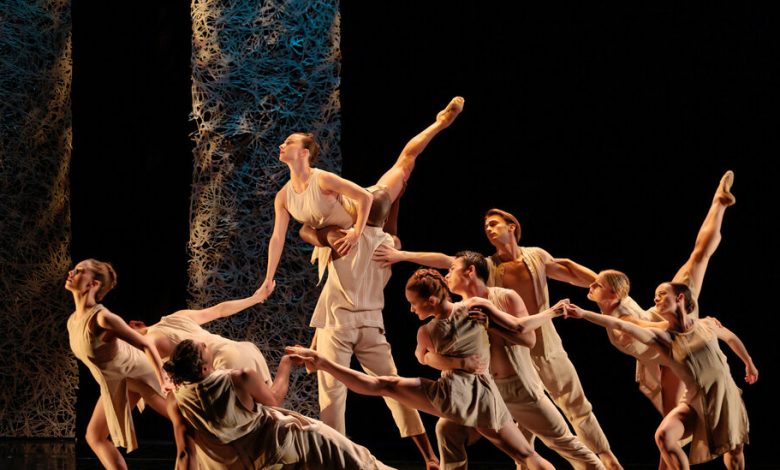Review: A Mixed Bill’s Highlight Bodes Well for the Future

Smuin Contemporary Ballet is a company in transition. Thirty years ago, it was founded in San Francisco by Michael Smuin, a choreographer who had co-directed San Francisco Ballet but also worked on Broadway and in Hollywood. This modern-dance-size troupe expressed that populist ballet sensibility. Since Smuin’s death in 2007, it has been led by Celia Fushille. But now Amy Seiwert, a former company member and choreographer-in-residence whose résumé also includes running Sacramento Ballet and her own group, is about to take over.
That could be good news, because Seiwert’s contribution to the program of three New York premieres that the troupe is performing at the Joyce Theater this week is by far the best. Her “Renaissance” (2019), for one, has the most interesting music: largely traditional Bulgarian and Slavic songs recorded by Kitka, an Oakland-based women’s vocal ensemble. Seiwert’s dance catches some of the mystery in those otherworldly sounds.
Terez Dean Orr, the company’s most senior and authoritative dancer, leads a sisterhood of women, who circle in deep, wide squats and interlace in daisy-chain patterns. Tess Lane appears later, distinguished by her costume as a kind of shadow to Orr, suspended and rotated and passed around weightlessly by men.
Throughout the work, Seiwert’s choreography both rides the soaring arcs of the voices and registers the quick, unusual rhythms. There’s a hint of “Les Noces,” Bronislava Nijinska’s beautifully brutal folk-wedding dance, in the group patterns, though “Renaissance” is cheerier and more celebratory. Near the end, when Lane is walked again by men but now holding hands with a paper-doll line of women, a sense of solidarity comes through.
Compared to this, Val Caniparoli’s 2014 work “Tutto Eccetto Il Lavandino” (“Everything But the Kitchen Sink”) is anodyne. To a selection of Vivaldi, the dancers appear in various configurations, doing ballet with wiggles. It’s pleasant in spots, but the eccentricity suggested by the title — and underlined at the conclusion with a prop sink — is tacked-on: tepid thrashing, cartoon sobbing, funky-chicken moves. The dancers lack the conviction to sell this, and the choreography, on the music in a dull way, brings out a milquetoast quality in their manner.